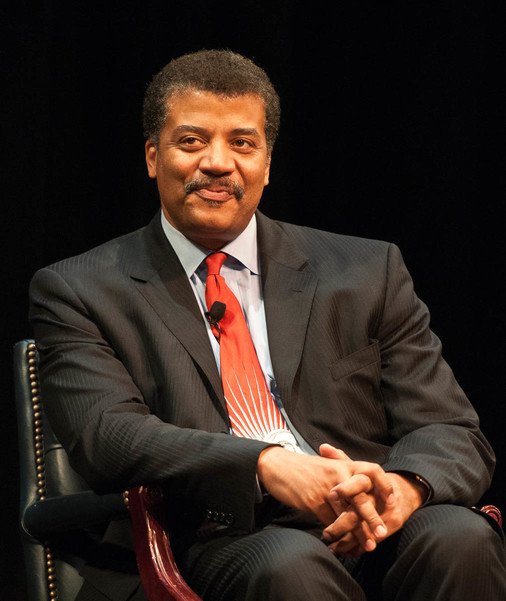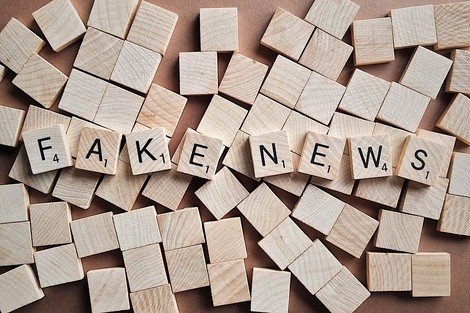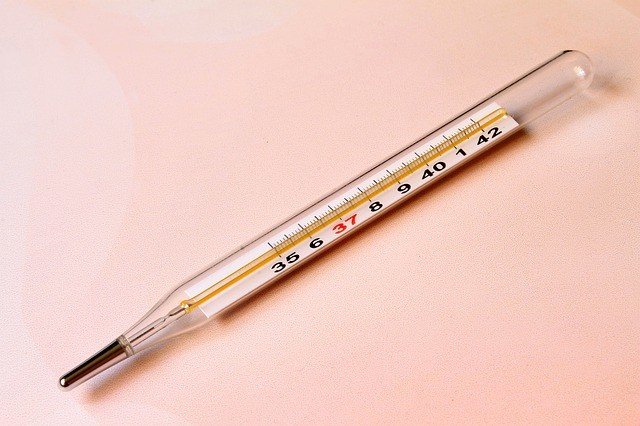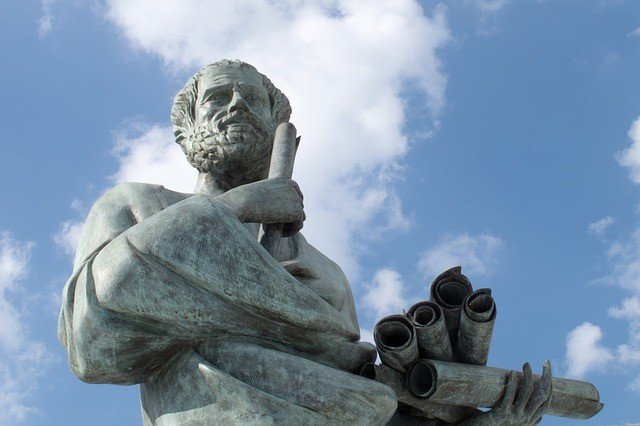The Four Fruits of Philosophy - Why Philosophy is Still Useful in the Age of Science

Is Philosophy "Dead" in the Age of Science?
A lot of big shot popularizers of science like Neil deGrasse Tyson have recently been making disparaging comments about philosophy and its relevance in the 21st century. He said "Yeah, if you are distracted by your questions so that you can't move forward, you are not being a productive contributor to our understanding of the natural world."
That's philosophy in a nutshell to a lot of people: "being distracted by stupid questions". Who needs it? Let's just axe entire philosophy departments.
But you know what's not a stupid question? How about whether a president or politician just made a logical fallacy? Holding our politicians responsible to reason and good thinking is at least one of the important civic duties of the philosophically minded.
Some politicians have questioned whether it's really still necessary to publically fund the work of philosophers in colleges and universities. Do we really need to be paying these people money to be professional doers of philosophy?
Often critics of philosophy make comparisons to the "productivity" of philosophy vs science to make the case that science is the more important of the two enterprises.
They'll point out that philosophy has not even come close to doing something dramatic like putting a man on the moon or building the internet.
So what has philosophy done?
This is harder to answer for the fruits of philosophy are not easily observed. They are not easily measurable like the accomplishments of engineering or the drugs of pharmacology. But if you look carefully you can see the effect of philosophy (or the lack of philosophy) everywhere.
I believe there are at least four main fruits of philosophy: fruits of critical thinking, of scientific criticism, of ethical reasoning, and the fruits of wisdom.
Fruits of critical thinking

One of the primary functions of the professional philosopher is to teach philosophy 101, critical thinking, logic, and other classes where the goal is just to make you a better thinker.
For many people these classes are their first introduction to the process of systematically applying reason to the world around them. This skill is sorely needed in our democratic society - just making more people able to apply reason to political ads on TV is a tremendously important thing.
For me, the reputation of philosophy as "useless" stems from its tendency to generalize the situation. It's a generalist profession. Philosophers are good at applying critical analysis to any type of information because they recognize certain argumentative patterns and how humans tend to make inferences. Knowing the patterns puts philosophically minded people on guard against the shoddy inferences being made by everyone all the time.
It's a never ending battle against hasty generalizations, ad hominems, dogmatism, arguments from authority, sloppy thinking, ambiguity, vagueness, etc., etc.
I see this battle against poor thinking as the primary duty of those who make a living as philosophers. Teaching students that style of thinking serves a protective mechanism for a democratic society. But I think that kind of philosophical teaching can be done on the internet, for free, in plain English, through the powers of social media - especially steemit. There is already a large and diverse philosophical blogosphere out there doing some real awesome stuff and sharing it with everyone.
Fruits of scientific criticism

Philosophy was once considered the Queen of the sciences. It served as the epistemological foundation for logically securing the inferences of science.
It still plays that role. As Daniel Dennett famously said, there is no philosophy free science, only science that hasn't analyzed its philosophical baggage. But all science has baggage, hidden assumptions about how reality is supposed to work.
For example, take the science of thermometry i.e. measuring heat.
Imagine there were no thermometers at all in your society and you decided to make one. So you build a mercury thermometer and it seems to work. But how do you know it's measuring this thing, "heat", accurately?
Your neighbor is also interested in thermometry and he built a gas thermometer because he feels that based on his theory of gases that a gas thermometer would be better than a mercury thermometer.
You test both thermometers and they give very slightly different readings. Which one is correct? You'd need a third thermometer to compare.
Either that or you'd need some kind of theoretical consensus on how heat functions to answer which thermometer would be best suited for measuring "heat", which you're still not super sure how it works because you haven't built a valid thermometer yet.
As you can see, the epistemological justifications for measuring "heat" go round in a circle. How did the original inventors of thermometry solve this problem? They worried about it immensely but ultimately just shelved the problem because they were first and forement experimentalists. They didn't need the theory because they were getting so much great data. It wasn't until centuries later that advances in theoretical physics paved the way for the modern understanding of heat. But the science of thermometry still progressed through experimentalist skill.
Hasok Chang has written a marvelous book called "Inventing Temperature" on the science of thermometry and the attempts throughout history of scientists building thermometers. Chang does more than just give the history, he analyses the epistemic issues involved and the nature of scientific circularity, which he calls the "problem of nomic measurement":
- We want to measure quantity X.
- Quantity X is not directly observable, so we infer it from another quantity Y, which is directly observable.
- For this inference we need a law that expresses X as a function of Y, as follows: X=f(Y).
- The form of this function f cannot be discovered or tested empirically, because that would involve knowing the values of both Y and X, and X is the unknown variable that we are trying to measure.
Most people think the epistemic foundations of thermometry are on very sturdy grounds. But things are much more complicated in terms of the number of inferential steps needed to conclude anything about "heat" using a measuring device. But can you imagine the epistemic dangers lurking in "softer" sciences like psychology? Philosophers are having a bonanza right now with the softer human sciences because there is shoddy reasoning everywhere you look.
Philosophy serves the sciences well by providing a critical analysis of the lurking philosophical assumptions implicit to all scientific inquiry. Which is not to say actual professional philosophers need to be employed by labs for science to make progress. It's just that usually the best scientists of their time have a keen appreciation of the deeper philosophical questions.
Fruits of ethical reasoning

One of the most important fruits of philosophical inquiry is the discovery of the fact/value distinction. Science can tell us what is the case but it cannot tell us what ought to be the case. Just having a keener awareness that facts by themselves don't entail anything about what we ought to do gives you a healthy appreciation of the difficulty of doing ethics, of thinking about how we ought to live our lives when confronted with tough choices, ethical dilemmas, and complicated questions about ascribing moral responsibility to agents.
If you don't think philosophy is relevant to issues in the 21st century you aren't following the abortion debate happening in the United States right now. The abortion debate is fundamentally a debate about how to define personhood, which is a question philosophers have been wrestling with for thousands of years.
There is a reason that most hospitals employ philosophers trained to deal with medical situations: real life often involves complex ethical issues involving life and death. Do we unplug this loved one from their feeding tube? It's not always obvious what doctors or caretakers "ought" to do. Being trained to make really, really careful distinctions can help isolate the values at stake and allow people to make critical healthcare decisions in a more reasonable and ethical manner.
The same principles of careful ethical reasoning apply to every other area in life, from what we eat and how we raise our food, to how we spend our money, to who we vote for, to how we take care of the needy, etc. Humans are ethical creatures and philosophy is very adept at teaching you the complexities of our normative life, the life of ethics and morality that makes human society so complicated.
Fruits of wisdom

Philosophy is of course a discipline that has roots in the wisdom tradition: the long chain of humans who have wanted to not just learn to talk about the Good Life but to actually live it. That is what wisdom is all about: knowing how to live a good life. Knowing what's valuable in life and what's not. So often you hear people on their deathbeds express regret that they worked too hard at their careers and had a warped sense of the important things in life.
For most people the important things in life typically revolve around developing good relationships, finding a passion or interest that consumes you, enjoying family, friends, and lovers, not worrying so much about money, slowing down, etc.
Conclusion
Philosophy is far from dead and in fact could not die because children are excellent philosophers. Philosophy's job is to teach everyone else to appreciate the child's questions.
A steemit original
image source Tyson: wikicommons
all other images: pixabay
That is a very interesting piece of text and I mostly agree with what you said.
I am really a bit astonished of people throwing away philosophy. It is, IMO, not incompatible with science at all and there is no problem of having both.
Those are in addition things that are crucially missing today, especially in the young kids (including those undertaking scientific studies). You give other good examples in your post!
Very glad to find you agreeing with the post. There is a lot of enmity sometimes between the two branches of knowledge, actively cultivated by some popular thinkers, which has unfortunately created the word "scientism": as if we needed yet another term attacking science. Most popularizers of science are with philosophy: Dawkins talks often with Dennett and Harris, Sagan peppered all his books with astonishingly varied and learned quotes from philosophy to history to literature to poetry, etc. But then there's guys like Hawking who say philosophy is dead. I doubt they even studied it. The only real enemy of science is irrationalism, superstition, and things of that ilk, that are not amenable to disproof or argument.
Using How, Why Where Who and What in the field of science are already philosophizing. Philosophy has no sign of dying as it's part of Human nature to wonder.
First thing Hitler did was burn the books. I think it's an honor if the first thing politicians want to axe is philosophy departments!
Alan Turing, anyone? What use is the internet without computers to access it.
I must confess a slight inadequacy in commenting since I am by no means a student of philosophy but I would suggest the disregard and mocking of the subject shown by the scientific elite such as the sorry excuse for a human being you have highlighted in your post fear that critical thinking is getting in the way of science forcing their 'evidence' down the throats of society and fear also that the more the 'public' are able to think critically, the greater the chance that they will in time discover that a lot of what has been sold to us as fact, is in fact 'bollocks'! :)
Science makes many claims, like having sent a man to the moon as you have referenced but when a lot of these claims are looked at critically, the evidence for, such as the evidence for having gone to the moon and back, is seriously lacking.
Great post @rachelsmantra!
A fantastic conclusion also! :)
I am a skeptic of many scientific claims but us going to the moon is not one of them. The evidence is overwhelming that we did so. We can just look at the moon and see the evidence.
https://www.space.com/12835-nasa-apollo-moon-landing-sites-photos-lro.html
I'm not sure if you are being genuine or sarcastic. I am hoping the latter since if it is the former then I would have to say I am disappointed that someone who considers themselves a critical thinker and writes so eloquently on the subject would accept as proof in this instance the evidence you have linked of the accused when trying to determine whether or not the accusation is valid.
Is the fact that we went to the moon something you know or something you think you know? Have you ever opened your critical thinking mind to the possibility that we didn't? I have, which is why I have some evidence of my own that we may not have done what we are told we did. I could provide it to you but I'm sure if you are interested enough you will find it yourself. If you haven't, then perhaps you are not thinking for yourself at all on the subject .
The only sources we have are NASA, a government program. How can you take that seriously?
Congratulations @rachelsmantra! You have completed some achievement on Steemit and have been rewarded with new badge(s) :
Click on any badge to view your own Board of Honor on SteemitBoard.
For more information about SteemitBoard, click here
If you no longer want to receive notifications, reply to this comment with the word
STOPLoved reading this post! :) Going to follow - Thanks for sharing .
Interesting thougts. thank you. what else could be the sense of phylosophy?